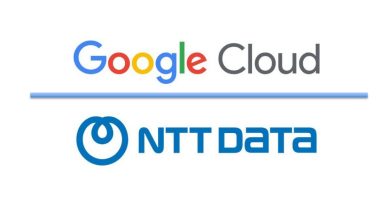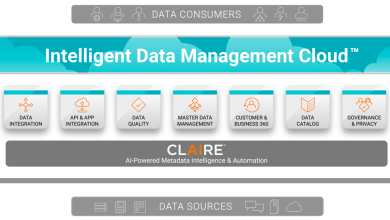Preempting the Inevitable: Why Google, AWS, Microsoft Eliminating Egress Fees Is Not That Surprising

It only takes one.
One bold soul to effect a big change.
One stone to create a ripple.
One pioneer to change the tide.
Google tried to be “the one”—that one cloud hyperscaler that will change the longstanding practice of charging exorbitant fees for data egress, or the movement of data out of one cloud infrastructure to another.
For years, cloud providers have harped on the cost savings of being in the cloud even as expenses can sometimes skyrocket to outrageous territory due to complicated pricing models and poorly managed cloud utilisation.
“This increase in cloud spending could be largely due to inefficient management of the cloud. Organisations may not have assessed workloads fully, resulting in incomplete specification of migration requirements,” David Chan, Managing Director, Singapore, at Adnovum explained to Data & Storage ASEAN in an exclusive interview last year. “Additionally, companies may have failed to consider indirect project costs—costs needed to reskill existing teams, adopt agile practices across the IT organisation and make changes to organisational structure and operating procedures.”
One cost companies probably are not taking into account or are completely unaware of is the exit fee cloud providers are imposing on customers. But the paradigm is quite simple: Yes, you are free to remove your data from one cloud, but you cannot do so for free. You will have to pay, and that fee, while nothing exorbitant per se, can pile up—to the point you would actually have second thoughts about paying up and packing out.

And, come to think of it, that is probably the endgame of it all: Make data egress so costly that customers will be discouraged to leave. It is tantamount to vendor lock-in without actually putting it in fine print.
Clever? Probably. Cunning? Absolutely! Illegal? No. Greedy? Possibly.
Google Bids Good Riddance to Exit Fees
Just this January, Google did what seemed unfathomable by putting a stop to this profitable practice.
“Starting today, Google Cloud customers who wish to stop using Google Cloud and migrate their data to another cloud provider and/or on-premises can take advantage of free network data transfer to migrate their data out of Google Cloud,” Amit Zavery, Vice President at Google Cloud, announced in a post. “This applies to all customers globally.
“Making it easier for customers to move from one provider to another does little to improve choice if customers remain locked in with restrictive licences,” Zavery further wrote. “Customers should choose a cloud provider because it makes sense for their business, not because their legacy provider has locked them in with overly restrictive contracting terms or punitive licencing practices.”
It was a bold move, to say the least—one that could disrupt the status quo, especially given Zavery’s pointed words in his blog about Google’s egress fee waiver. (Read it in full HERE.)
“Certain legacy providers leverage their on-premises software monopolies to create cloud monopolies, using restrictive licencing practices that lock in customers and warp competition,” Zavery pointed out. “The complex web of licencing restrictions includes picking and choosing who their customers can work with and how; charging 5x the cost if customers decide to use certain competitors’ clouds; and limiting interoperability of must-have software with competitors’ cloud infrastructure. These and other restrictions have no technical basis and may impose a 300% cost increase to customers….”
With a combined share of 55% of the worldwide cloud market, it does not take a genius to infer that Zavery just took a shot at AWS (31% market share) and Microsoft (24%), the two hyperscalers that have commanded the market for the past how many years already.

In no uncertain terms, Google just called out the competition, and it may change the course of the cloud. Or it might not.
And Then There Were Two
Just two months after Google’s bold move, it appears the competition is responding in kind—at least in the case of cloud giant AWS. In an equally surprising move, the market leader in cloud just went tit-for-tat with Google, waiving its own exit fees as if saying, “Game on!”
“You told us one of the primary reasons to adopt Amazon Web Services (AWS) is the broad choice of services we offer, enabling you to innovate, build, deploy, and monitor your workloads. AWS has continuously expanded its services to support virtually any cloud workload. It now offers over 200 fully featured services for compute, storage, databases, networking, analytics, Machine Learning (ML) and Artificial Intelligence (AI), and many more…” AWS wrote in a blog post announcing its own bold move.
“We believe this choice must include the one to migrate your data to another cloud provider or on-premises. That’s why, starting today, we’re waiving data transfer out to the Internet charges when you want to move outside of AWS,” the company said further. “Over 90 per cent of our customers already incur no data transfer expenses out of AWS because we provide 100 gigabytes per month free from AWS Regions to the Internet. This includes traffic from Amazon EC2, Amazon Simple Storage Service (Amazon S3), and Application Load Balancer, among others. In addition, we offer one terabyte of free data transfer out of Amazon CloudFront every month.”
Again, tit-for-tat. And it left Zavery little choice but to acknowledge in a tweet AWS’s positive response—never mind the actual intent behind it, whatever it is. The Google executive, though, was not quite done calling out the competition, imploring Microsoft to follow suit.
“Kudos to @aws for taking action and supporting customer choice,” Zavery wrote on X (formerly Twitter). “It is time for @microsoft to remove exit fees and its anti-competitive licensing that hurts customers, AI innovation, and competition by preventing choice.”
Just like that, Microsoft was backed into a corner.
And Then There Were Three
A month after AWS followed Google’s lead, Microsoft decided to do the same, eliminating its own egress fees for customers looking to move their data out of Azure.
“We support customer choice, including the choice to migrate your data away from Azure,” Microsoft wrote in a blog announcing its own egress decision. “Azure now offers free egress for customers leaving Azure when taking their data out of the Azure infrastructure via the Internet to switch to another cloud provider or an on-premises data centre.”
Just like that, the world’s three biggest hyperscalers had become altruistic, seemingly putting customers’ best interests at the forefront and caring about their right to have a choice in this increasingly multi-cloud world.
So… Is There a Catch?
All things considered, maybe Google really was The One since AWS and Microsoft seem to have only followed Google’s lead. Nonetheless, as the saying goes, the devil is in the details as this transition unmistakably comes with built-in restrictions. According to Silverlinings, this waiver of egress fees “applies only to customers exiting Google’s cloud entirely” and “only to a handful of its services” that include BigQuery and Persistent Disk.
What’s more, Sid Nag, Vice President at Gartner’s Technology and Service Provider Group, explained also to Silverlinings that customers wanting out of Google Cloud need to actually apply to waive these exit fees. Then, only upon approval of this application can the customer begin what will purportedly be a 60-day egress process, and it is, according to Nag, still unclear what kinds of help, if any, Google will provide to facilitate it.

Even then, experts argue that AWS’s and Microsoft’s own egress fee exit proclamations are limited in some ways, too, and are more marketing gimmicks than genuine acts of altruism. And, really, in the grand scheme of things, this move towards eliminating exit fees is probably nothing more than a self-serving ploy. After all, existing legislation, like the European Data Act, and closer scrutiny, as with the US Federal Trade Commission seeking public input on cloud practices, would have left cloud providers little choice but to eliminate—or at least reduce—these egregious egress fees.
But, in a world increasingly opting for multi-cloud environments, reducing or gradually removing these exit fees is a step in the right direction for cloud customers—especially those seeking greater flexibility in the cloud.
“Organisations are starting to realise that control of their data, the environments, and the data paths are increasingly important,” Nag further told Silverlinings. “Those with multi-cloud strategies want to be able to place data near workloads where they are best served across a portfolio of cloud service providers they retain. The egress fees present walls to gardens they would rather not be confined to.”
Google, AWS, and Microsoft are apparently trying to tear down those walls, or at least poke holes in them—never mind the probable self-serving intentions behind it. Their efforts might not be much, but these may create a ripple effect in the future that will ultimately change the way the world’s biggest cloud providers conduct business.




